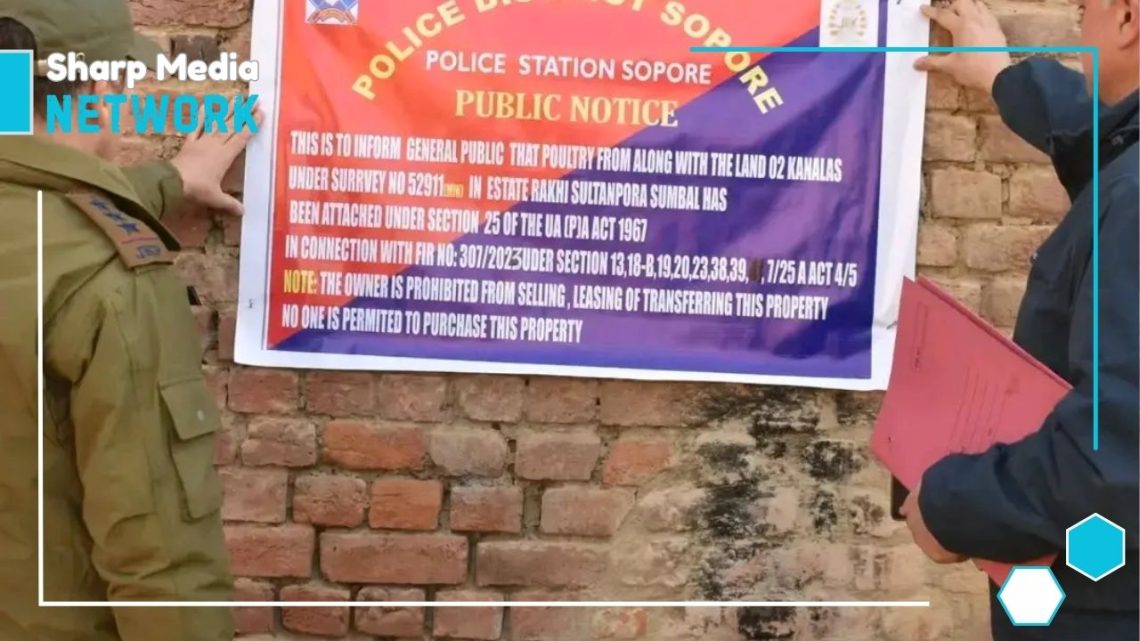
BJP-led Indian Regime Continues Aggressive Property Seizures in IIOJK
March 8, 2025 Off By Sharp MediaThe Bharatiya Janata Party (BJP)-led government in India has escalated its crackdown on Kashmiris by seizing their properties, as part of a broader strategy to suppress their voices and destabilize the region.
The Indian government’s continued actions in Indian Illegally Occupied Jammu and Kashmir (IIOJK) are raising serious concerns about its long-term intentions. Under the leadership of BJP’s Lieutenant Governor Minhaj Sinha, the Indian authorities have attached the properties of six more Kashmiris, including Hurriyat leader Mohammad Abdullah Malik, and other prominent figures like Farooq Ahmad Ganie, Abdul Rashid Doie, Sarfraz Ahmad, Mohammad Anwar Mir, and Mohammad Yousuf Turk. This latest move targets properties in Bandipora district, with a combined value of approximately Rs 2 crore and 81 lakh.
The seizures are carried out under the stringent Unlawful Activities (Prevention) Act (UAPA), a controversial law often used to silence dissent. A police team led by Deputy SP Headquarters, Lateef Khan-JKPS, along with other law enforcement officials, carried out the property attachment, which included eight kanals and one marla of land. These properties are now under strict restrictions, with any attempt to sell, lease, or transfer them requiring explicit approval from the Indian authorities.
This action is part of a wider, ongoing strategy by the BJP-led government to undermine Kashmiris’ economic stability and suppress their right to self-determination. The United Nations and international communities have long recognized the right of Kashmiris to determine their political future, yet these actions by India continue to contravene international laws and agreements.
Since the controversial revocation of IIOJK’s special status in August 2019, the BJP government has systematically confiscated hundreds of properties from Kashmiris, citing various reasons. Critics argue that this campaign is an attempt to economically destabilize the region and alter its demographic makeup by encouraging non-Kashmiris to settle on land that was once owned by locals.
The consequences of these actions are far-reaching, affecting the livelihoods of many Kashmiris who rely on their land for survival. These properties, often passed down through generations, represent more than just economic value—they are an essential part of the cultural identity and heritage of the Kashmiri people.
In addition to these property seizures, the Indian government’s actions have led to widespread international condemnation, with many human rights organizations labeling the move as a violation of international law. The United Nations’ resolutions regarding Kashmir, which call for a peaceful resolution and respect for the region’s self-determination, continue to be ignored by India.
The BJP-led Indian government’s policies, which continue to tighten their grip on IIOJK, are increasingly seen as part of a deliberate effort to stifle any opposition to its colonial agenda in the region. As the property seizures continue, Kashmiris are faced with the harsh reality of not just losing their land, but also the erosion of their fundamental rights.

